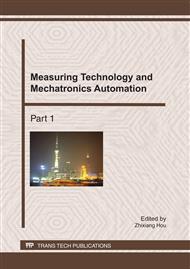p.1231
p.1235
p.1241
p.1245
p.1250
p.1256
p.1261
p.1265
p.1271
The Empirical Analysis on E-Government Customer Satisfaction
Abstract:
According to the characteristics of the Chinese e-government development, the paper presents the customer satisfaction indicators about e-government measurement. It takes Yongchuan District in Chongqing for example and designs the questionnaire to collect sample data. It goes on an empirical analysis of customer satisfaction using weighted average method. The weights are determined by the survey data which are done factor analysis. This method will be more objective in calculating weights. Finally, from the public point of view, it raises reasonable recommendations on the level of e-government in Yongchuan District.
Info:
Periodical:
Pages:
1250-1255
Citation:
Online since:
February 2011
Authors:
Price:
Сopyright:
© 2011 Trans Tech Publications Ltd. All Rights Reserved
Share:
Citation:


